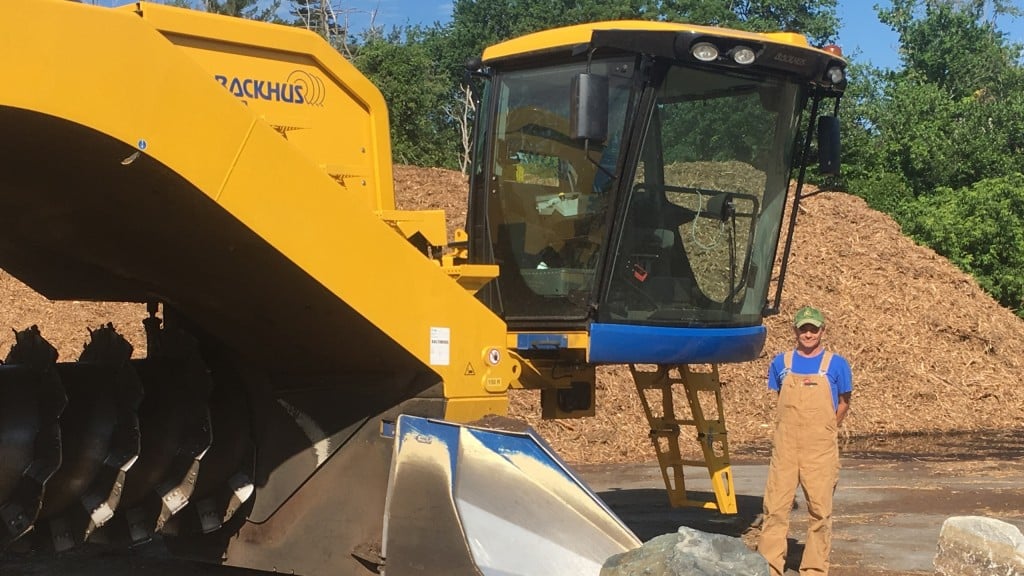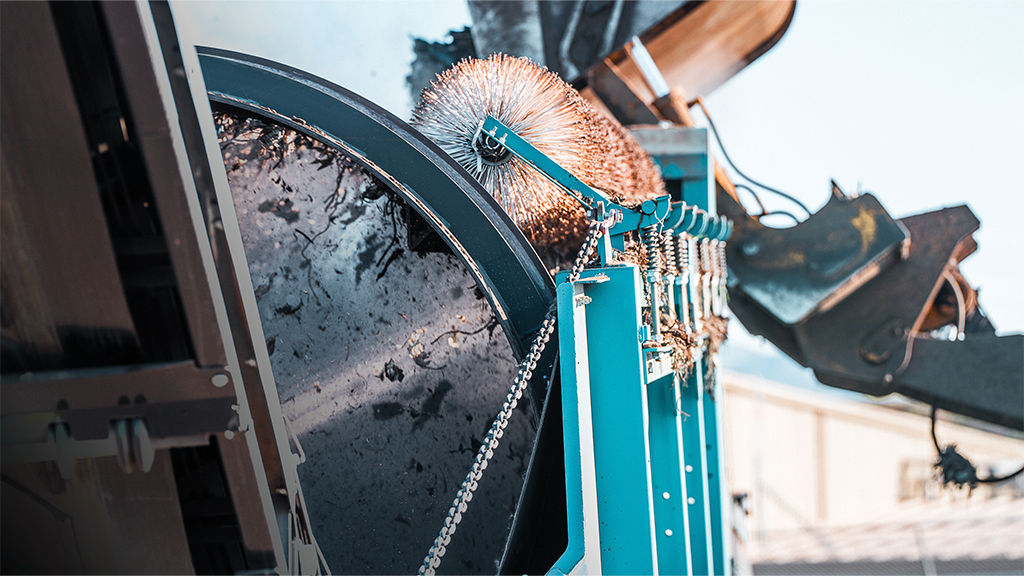Backhus turner and Doppstadt screens provide needed production and versatility for converted composting site
Building a profit machine in Lexington

Regulation can be a powerful business stimulus. For the Town of Lexington, Massachusetts, state regulation proved to be a huge municipal benefit as well. When the Massachusetts yard waste recycling mandate took effect in 1987, the visionary leaders in Lexington converted an outdated, unused 30-acre landfill into a composting site to eliminate transfer costs for all the green waste they were collecting. Thirty years later, the operation has become a profit machine, effectively flipping hundreds of thousands of dollars of expenses to the other side of their balance sheet.
Converting Costs to Revenues
Kerry Weaver, operations manager of the site, emphasizes the benefits that organics recycling has generated.
"This is a completely self-supporting operation that produces a positive cash flow for the city," Kerry shares. "All our labour and equipment investments come from our revenues, and we're still able to give back to the budget."
He says residents also gain the benefit of having access to an organics recycling yard. "Residents can of course drop off material at no charge," continues Kerry. "The compost we produce is then sold back into the community to landscapers and individuals, so all those organics are eventually returned to our land."
Space, time and cost
Back in 2016, city leaders had a new vision and voted to convert five and a half acres of the compost site into a solar farm which generates nearly 2.2 MW of electricity to help offset the cost of powering the municipal buildings around town. While that outcome is obviously in the best interest of the city overall, the loss of space proved challenging to the compost operation.
"All of our windrows had been previously set down with 20 feet of buffer between them. We turned with front-end loaders, so the extra space was necessary," recalls Kerry. "When we lost the acreage to the solar project, we didn't want to reduce our overall production so we needed to find a solution."
That solution came in the form of a new BACKHUS A60 compost turner. Adding more equipment to a smaller site may seem counterintuitive on the surface, but the benefits were enormous.
"The BACKHUS turner allowed us to build our windrows toe to toe, so we could easily fit as much compost into the reduced space," Kerry explains. "But the real benefit was in time and cost."Turning with front-end loaders used to require two people, 10 days and 800 gallons of fuel.
Today, Kerry's team turns an equal amount of material with one person in eight hours, using only 100 gallons of fuel. Curing time improved dramatically as well, reduced by nearly half.
"Getting high-quality finished compost in seven months, where before we used to wait 14 months, is a real difference maker. So not only can we fit more windrows in less space, we're able to cure twice as much compost in the same amount of time. It's really unbelievable how much our investment in the BACKHUS has paid off."
Expanding capability with a two-in-one screen
As the operation became ever more efficient, Kerry found additional materials and products that could be produced and offered. In 2018, leaf and bark mulches were added to the mix.
"We do a leaf mulch, as well as a black bark and natural brown bark mulch," he said. "Those products have been very popular since we started making them."
But the additional products required another investment in equipment to make the economics work. Lexington had no screening capability on site, and were relying on an outside contractor to come in and take care of their screening needs as they arose. With the addition of mulches, screening demand rose to the level where a screen acquisition made sense.
"We knew we wanted a trommel screen to produce a finer compost product, but since we started making mulches too, a star screen also seemed appealing," admits Kerry.
Ultimately, the City of Lexington opted for a Doppstadt SM 720K trommel screen with a star screen insert.
"That's what made the Doppstadt such a perfect choice for us. The ability to run a trommel drum, but easily switch to a star screen insert suited our flexibility quite well. Now, when we're making bark mulches, or if our compost is really wet, we can swap in the star unit and keep our production rates running at peak."
Another factor in their equipment acquisitions was the option of a tracked chassis versus rubber tires. Running a 12-month operation in New England presents some challenging conditions in deep snow or the rainy spring, and being able to locate equipment without hassle is important. Both the BACKHUS A60 turner and the Doppstadt SM 720K trommel come on tracks, and Kerry is glad they made that decision.
Painting on a Blank Canvas
For more than 40 years, prior to taking on his role at the City of Lexington compost site, Kerry worked in the construction industry, and spent six years of service in the military. When the opportunity arose to lead the effort to build this compost operation, he says he was thrilled.
"When this first opened, they told me I had a blank slate and to just go make it work," he recalls. "It was fantastic. I got to chart the course and the town supported us greatly. "There were some slow times and some hard times, but looking back on what we've built is tremendously rewarding. This is a resource that the residents cherish, and I'm so pleased to have been able to play a part and looking forward to all the new ideas we have planned."
This article was provided by Ecoverse Industries, and was originally published in Recycling Product News, Volume 26, Number 8.
Painting on a Blank Canvas
For more than 40 years, prior to taking on his role at the City of Lexington compost site, Kerry worked in the construction industry, and spent six years of service in the military. When the opportunity arose to lead the effort to build this compost operation, he says he was thrilled.
"When this first opened, they told me I had a blank slate and to just go make it work," he recalls. "It was fantastic. I got to chart the course and the town supported us greatly. "There were some slow times and some hard times, but looking back on what we've built is tremendously rewarding. This is a resource that the residents cherish, and I'm so pleased to have been able to play a part and looking forward to all the new ideas we have planned."
This article was provided by Ecoverse Industries, and was originally published in Recycling Product News, Volume 26, Number 8.





